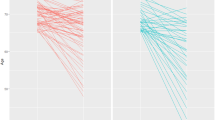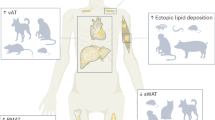Abstract
IT is generally acknowledged that the carotenes are 'provitamins', but there is no clear definition of the term 'provitamin' in the literature ; the general view seems to be that it is a compound which is not a vitamin itself but after minor changes is transformed into one. The organism may be incapable of carrying out this transformation (D-provitamins), or it may be able to do so (A-provitamins). The term' provitamin ' was first used by Harris1, while Moore2,3 called carotene a precursor of vitamin A. The opinion of these and all subsequent authors seems to be based only upon Moore's experiments on storage of vitamin A. As in the rat the minimal doses necessary to cause storage are about ten times those giving optimal biological effect4,5, the deposition and the biological action take place at widely separated dose-levels. Further, the former takes place in the liver6,4,5, while the latter takes place all over the organism (surface epithelium, nerve cells, retina) where it cannot be followed by chemical analyses. Thus these two processes are not identical, and one cannot conclude that the carotenes do not possess biological A-action per se because they are stored in the form of vitamin A.
This is a preview of subscription content, access via your institution
Access options
Subscribe to this journal
Receive 51 print issues and online access
$199.00 per year
only $3.90 per issue
Buy this article
- Purchase on Springer Link
- Instant access to full article PDF
Prices may be subject to local taxes which are calculated during checkout
Similar content being viewed by others
References
Harris, L. J., Ann. Rev. Biochem., 1, 337 (p. 371) (1932).
Moore, T., Lancet, 217, 380 (1929).
Moore, T., Biochem. J., 24, 692 (1930).
With, T. K., "Absorption, Metabolism and Storage of Vitamin A" (Copenhagen: Munksgaard: London: Oxford Univ. Press, 1940).
With, T. K., Vitamine und Hormone, 2, 369 (1942).
Moore, T., Biochem. J., 25, 275 (1931).
Moore, T., Lancet, 216, 499 (1929).
Palmer, L. S., I.A.M.A., 110, 1798 (1938).
With, T. K., and Wanscher, o., Nord. Med., 4, 3425 (1939).
With, T. K., and Wanscher, O., Vitamine und Hormone, 3, 341 (1943).
Schäffer, H. W., Vitamine und Hormone, 3, 241 (1942).
With, T. K., Vitamine und Hormone, 3, 375 (1943).
Kuhn, R., Brockmann, H., Scheunert, A., and Schieblich, M., Z. physiol. Chem., 221, 129 (1933).
Kuhn, R., and Grundmann, C., Ber. deut. chem. Gesell, 67, 593 (1934).
Kuhn, R., and Brockmann, H., Ber. deut. chem. Gesell, 67, 1408 (1934).
Kuhn, R., and Brockmann, H., Z. physiol. Chem., 213, 1 (1932).
Brockmann, H., and Tecktenburg, M.L., Z. physiol. Chem., 211, 117 (1933).
Author information
Authors and Affiliations
Rights and permissions
About this article
Cite this article
WITH, T. Is Carotene a Provitamin A, or has it Biological Activity per se?. Nature 157, 627–628 (1946). https://doi.org/10.1038/157627c0
Issue Date:
DOI: https://doi.org/10.1038/157627c0
This article is cited by
-
Vitamin Storage and Utilization in the Organism
Nature (1946)
Comments
By submitting a comment you agree to abide by our Terms and Community Guidelines. If you find something abusive or that does not comply with our terms or guidelines please flag it as inappropriate.



